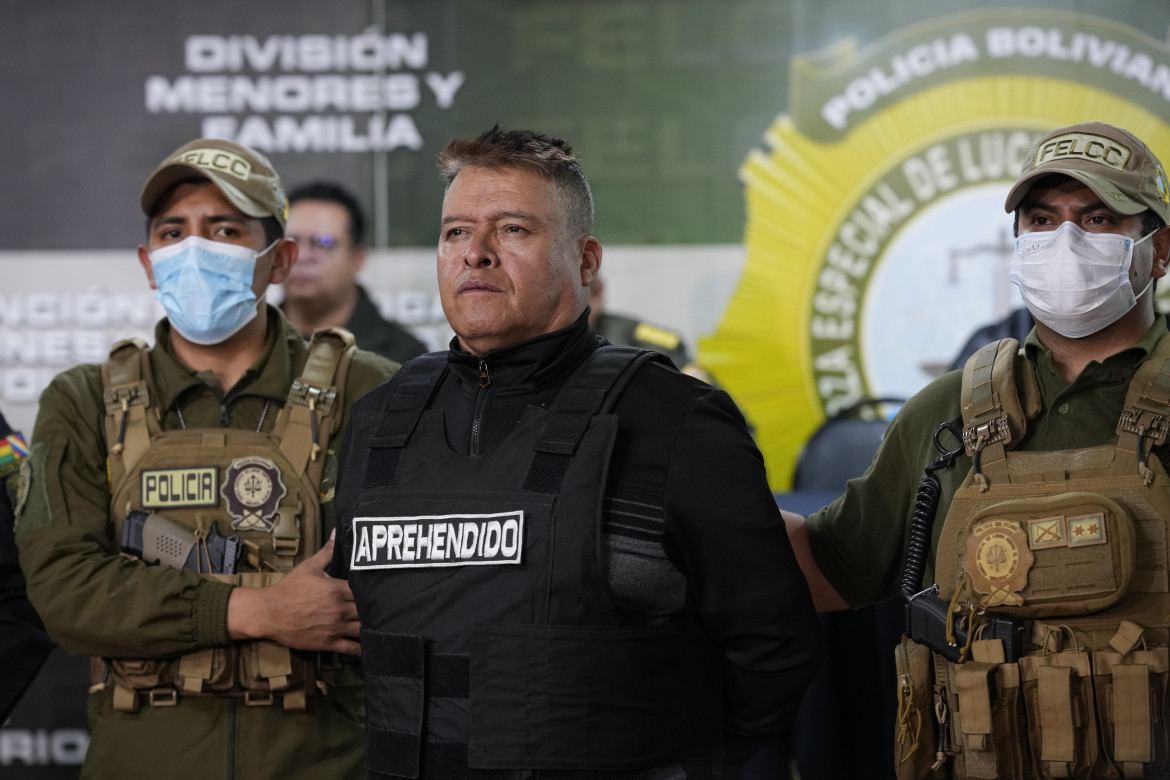Analysis
Failed coup in Bolivia was a wake-up call that democracy is not yet for granted
This serious act of political interference was immediately condemned by the Evista wing of the Movimiento Al Socialismo, which has long been de facto in the opposition.

The truth is as simple as can be: the friendly fire between current President Luis Arce, struggling to deal with the current recession, and former President Evo Morales, determined to take back power, can only favor the forces that want to see a coup happen. And while the surprise coup attempt by the now-former commander of the armed forces, Gen. Juan José Zúñiga, was thwarted quickly and relatively painlessly (with at least 12 wounded), it nevertheless sounded a troubling wake-up call for Bolivia’s still-fragile democracy.
It was clear that something was amiss from Zúñiga’s controversial statements right before the coup, who said on Tuesday that if Morales ran for president in 2025, the armed forces would proceed to arrest him. “That man cannot return to the presidency of the country. He is legally prohibited. According to the Constitution, he cannot serve more than two terms, and he has already been elected three times. The armed forces have a mission to enforce the Constitution.”
This serious act of political interference was immediately condemned by the Evista wing of the Movimiento Al Socialismo, which has long been de facto in the opposition, but it was also rejected by President Arce, who, although he has a keen interest in preventing a fifth candidacy by his rival – after the fourth notoriously ended in a coup that exacted a heavy toll on the country – proceeded to remove the general from his post.
Then, the situation escalated quickly: with a deployment of forces also supported by Navy and Air Force commanders Juan Arnez Salvador and Marcelo Zegarra, a hundred soldiers led by Zúñiga occupied Plaza Murillo in La Paz and proceeded to drive a tank through the gates of the Palacio Quemado, the seat of the government. “It is the duty of the armed forces” to save the country “one more time”: “no more impoverishing the homeland and humiliating the army,” Zúñiga told the press, stressing that, while he still recognized Arce’s authority “for the time being,” a new government would soon be appointed, because ”our country cannot go on like this.” He also said that those who plotted the 2019 coup, namely Jeanine Áñez, Luis Fernando Camacho and the military personnel involved, would be set free.
Unlike in 2019, however, the military police remained loyal to the president, so everything fell apart within three hours, with the arrest of Zúñiga and Juan Arnez Salvador and Arce appointing new military leaders: Gen. José Wilson Sánchez Velásquez as commander of the army, Gen. Gerardo Zabala as head of the Air Force, and vice admiral Renán Guardia as head of the Navy. “Everything is under control,” assured Defense Minister Edmundo Novillo, urging the people who had gathered in the square to support the government to “return to their own activities,” while the president praised “those of the military who wear their uniforms with pride,” as opposed to those who had tried to “make history repeat itself.”
However, after he was arrested, Zúñiga once again surprised everyone: he claimed, without presenting evidence, that the storming of the government building had been a plot hatched together with Arce to boost the latter’s popularity. However, in the absence of corroboration, this version of events is hardly credible: it would be truly shocking naivete for Zúñiga to trust such a verbal agreement without covering his back. However, the scenario that Arce himself had orchestrated the coup attempt was taken up immediately both by the right-wing opposition – whose Congresswoman Luisa Nayar denounced the “unbelievable political show” organized by the “irresponsible, incompetent and corrupt” tenants of Palacio Quemado – and the Evista wing of the MAS, who also seem convinced that the president’s face-to-face confrontation with the general and his soldiers was all a setup.
“I will not allow such insubordination,” Arce had said in the heat of events, claiming he was ready to “confront any coup attempt” and calling on the people to mobilize in defense of democracy. Amid the MAS’s unseemly infighting, the scene certainly played in the president’s favor, all the more so given the striking comparison with Morales’s behavior in 2019, who fled in great haste without even leaving any instructions to those still in the country.
Originally published at https://ilmanifesto.it/bolivia-stavolta-niente-golpe-il-generale-alla-fine-resta-solo on 2024-06-28
